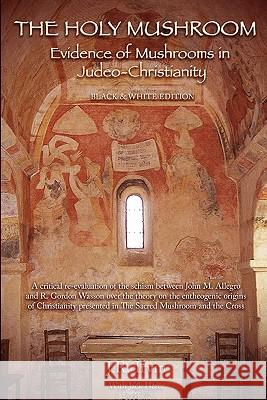The Holy Mushroom: Evidence of Mushrooms in Judeo-Christianity » książka
The Holy Mushroom: Evidence of Mushrooms in Judeo-Christianity
ISBN-13: 9780982556207 / Angielski / Miękka / 2009 / 190 str.
Black & White edition, second printing. Christianity and the Piltdown Hoax (one of the largest academic scandals in history) share many similarities: In both stories the information was constructed and then salted into the information stream, and, through the word of noted scholars, presented as fact, the truth. Scholars have egos and once committed to their ideas through scholarly publications, faculty meetings, and conferences, have difficulty seeing, hearing, or even appreciating an adverse view. To waver from a strongly held opinion could spell academic ruin and withdrawal of acclaim. This leads to lively debate, counter stories, and even character assassination if one side or the other is being out trumped in the symbolic melee. Jan Irvin (The Holy Mushroom) has captured what we might call an "anthropology of clarification" regarding whether or not mushrooms, and mind-altering substances in general, played any role in the development of not only Judaism and Christianity but the total culture in play at that time. It is now recognized in many academic communities (anthropologists, sociologists, psychiatrists, psychologists) that sufficient evidence exists of the importance of these substances, both textual and visual, to say "yes" in very large letters. It is no longer theory. The questions Irvin asks are these: "If mind-altering substances did play this major role, then how would this affect our interpretations of the Bible and the Qur'an? Would this shed light on the origins of mystical experiences and the stories, for example Abraham hearing voices and Ezekiel's convenient visions? What would this suggest about the shamanic behavior of Jesus? What impact would this have on organized religion?" These are bold questions. This is a very useful volume for those interested in the Holy Mushroom and the politics of truth. Detailed and wonderfully illustrated; great bibliography. Professor John A. Rush, Sierra College"











